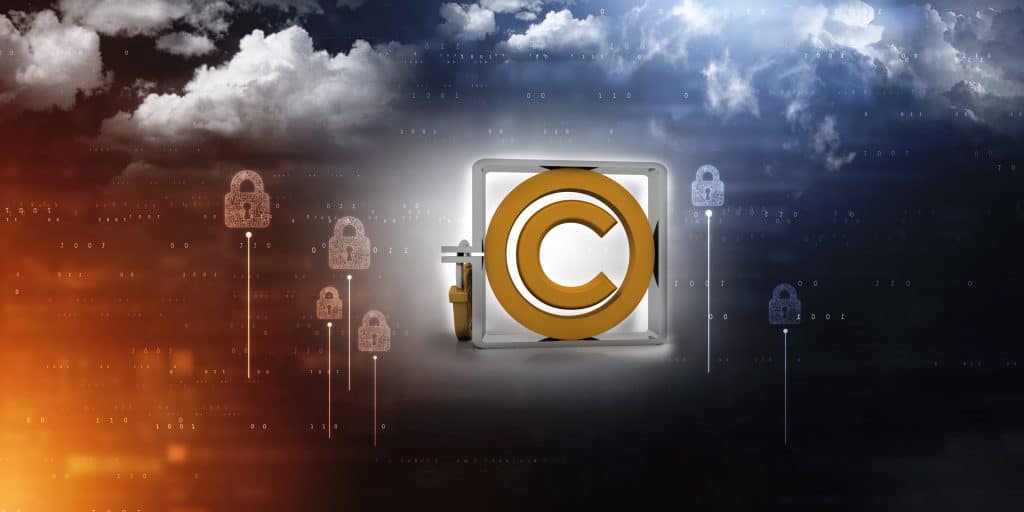Is Earning Prize Money in Esports Considered a Side Job? An Explanation Including Income Classification

eSports refers to the concept of treating competitive matches using computer games or video games as sports competitions. The eSports industry has been gaining momentum in recent years, with many prize money tournaments being held. Some professional gamers even make a living from the prize money of these games.
So, if you are earning prize money from eSports, would it be considered a side job and be prohibited by employment rules and regulations? In this article, we will explain this point for those who are concerned about it.
What is eSports?
In simple terms, eSports is the concept of treating video game competitions as sports. In February 2018, the Japan eSports Union (JeSU) was established, and the “JeSU Certified Pro License System” was created to promote eSports.
The background to the creation of the “JeSU Certified Pro License System” was the potential for eSports tournament prize money to fall under the regulations of the Japanese Prize Labeling Act.
If the prize money is provided as “compensation for appearing in the tournament” or similar, it does not fall under the regulations of the Prize Labeling Act.
The “JeSU Certified Pro License System” was established to define the criteria for when eSports tournament prize money can be recognized as “compensation for work, etc.”
Thanks to this system, the risk of prize money tournaments falling under the regulations of the Prize Labeling Act has been reduced, making it easier to hold such tournaments.
Furthermore, numerous domestic and international tournaments are being held, and the number of eSports participants is expected to increase in the future.
Reference: License | Japan eSports Union Official Site
Does Winning Prize Money in eSports Tournaments Count as a Side Job?

If you are winning prize money in eSports tournaments, does it count as a side job? The reality of earning prize money in eSports varies greatly.
It is necessary to determine whether it counts as a side job based on the actual situation, but there is no clear definition of “side job” in the first place.
As we will detail later, for company employees, there is no law prohibiting side jobs. The issue arises when the company’s work rules prohibit side jobs.
What is considered a side job varies depending on the situation, but the income category seems to be one of the criteria for judgment.
Taxes are levied on the prize money won in eSports tournaments, and you must file a tax return. At that time, whether the income category is “temporary income” or “business income” can be one of the criteria for determining whether it is a side job.
If You Declare the Prize Money as Temporary Income
If you play online games as a hobby, not for profit, and happen to win a prize by participating in a tournament on your day off, it is likely to be classified as temporary income. If the tournament prize money is more than 200,000 yen per year, it will be subject to income tax return.
If you declare the prize money as temporary income, it is likely to be recognized as a mere hobby and not considered a side job.
If You Declare the Prize Money as Business Income
If you are continuously participating in tournaments and winning prize money, or if you have obtained a professional license, it is likely to be classified as business income. If you earn more than 480,000 yen per year in tournament prize money, you will need to file an income tax return.
If a company employee is earning prize money in this way on a continuous basis, or as a professional player, it is often considered a side job, depending on the frequency.
Effectiveness of Prohibition on Side Jobs in Employment Rules
Firstly, is there a legal basis for the provision in employment rules that prohibits side jobs?
In fact, there is no provision in labor laws or civil laws related to work that prohibits side jobs. However, it may be prohibited or restricted in a company’s “Employment Rules”.
Also, in the case of public servants, it is prohibited by “law”.

Criteria for Whether e-Sports Fall Under Prohibited Side Jobs in Company Employment Rules
In court precedents, how workers spend their time outside of working hours is generally considered to be the freedom of the worker, and it is thought that companies are not allowed to restrict this freedom.
Regarding the blanket prohibition of side jobs, it has been stated in the precedent of the Ogawa Construction case (Tokyo District Court decision, November 19, 1982 (Showa 57), Labor Civil Example Collection 33 Volume 6 Page 1028) that “since the time outside of working hours is originally the freedom of the worker, it lacks rationality to completely prohibit side jobs in the employment rules, except in special cases.”
So, in what cases is it considered a violation of the employment rules? According to precedents, it was recognized as a violation of the employment rules in the following cases:
- When it clearly interferes with the main job (such as when the time spent on the side job is long and lasts until late at night every day)
- When corporate secrets are leaked and it constitutes a breach of confidentiality (such as when working a side job at a competitor)
- When it damages the company’s reputation or destroys the relationship of trust (such as when working a side job that involves antisocial forces)
- When it disadvantages the company due to competition (such as when working in the same industry as the main job as a side job)
Therefore, even if you have won prize money in e-sports, if it does not fall under the above, the likelihood of being subjected to disciplinary action by applying the prohibition on side jobs is low.
Criteria for Whether e-Sports Fall Under Side Jobs for Public Servants
As mentioned earlier, side jobs for public servants are prohibited by “law”. This is because public servants are required to be fair and neutral in their duties as servants of the entire nation. For national public servants, the National Public Service Act states:
“An officer shall not serve as an officer, advisor, or councilor of a company or other organization that aims to conduct commerce, industry, finance, or other profit-making private enterprise (hereinafter referred to as “profit-making enterprise”), or conduct a profit-making enterprise himself/herself.”
National Public Service Act Article 103, Paragraph 1
“An officer who receives remuneration, serves as an officer, advisor, or councilor of a non-profit-making enterprise, or engages in any other business, or performs duties, requires the permission of the Prime Minister and the head of the officer’s jurisdiction.”
National Public Service Act Article 104
Therefore, side jobs are not allowed unless permission is granted.
For local public servants, it is stipulated:
“An officer shall not, without the permission of the appointing authority, serve as an officer or other position determined by the Personnel Commission Rules (or the rules of the local public entity where there is no Personnel Commission) of a company or other organization that aims to conduct commerce, industry, finance, or other profit-making private enterprise (hereinafter referred to as “profit-making enterprise” in this paragraph and the next paragraph), or conduct a profit-making enterprise himself/herself, or engage in any business or duties for remuneration. However, this does not apply to part-time officers (excluding officers occupying short-time work positions and officers listed in Article 22-2, Paragraph 1, Item 2).”
Local Public Service Act Article 38, Paragraph 1
Therefore, public servants are more strictly restricted in their side jobs than private sector employees.
So, does e-sports fall under side jobs?
As I have repeated, there is no clear standard as to whether winning prize money in an e-sports tournament falls under a side job.
It can only be said that a comprehensive judgment must be made by looking at the amount of prize money, whether the prize money is received repeatedly and continuously, the income category of the prize money (temporary income or business income), etc.
Generally, if you do not have a professional license and have only received prize money once, it would not be considered a side job.
Since there is no precedent yet as to whether activities as an e-sports player fall under side jobs, it is necessary to pay attention to how the courts will judge in the future.
Receiving eSports Prize Money as Job Compensation
As previously mentioned, when a player with a professional license wins prize money in a tournament, that prize money is recognized as “job compensation”.
One of the purposes of the Japanese eSports Union (JeSU) certified professional license system is to clearly establish that eSports players are professionals. Therefore, players who hold a JeSU certified professional license are considered to be in the profession of “eSports professional player”.
Consequently, if you hold a JeSU certified professional license, the prize money won in eSports tournaments is considered business income.
Winning Prize Money in eSports Competitions Abroad

In recent years, there has been an increase in the number of eSports competitions held overseas. In this article, we will explain the tax system that applies when you win prize money at an overseas competition.
It’s easy to understand that if you win prize money at an eSports competition in Japan, you will be taxed in Japan. But what happens if you win prize money at a competition overseas?
According to Article 5, Paragraph 1 of the Japanese Income Tax Law, residents of Japan are obligated to pay income tax. Regardless of whether the income is generated domestically or overseas, all income is taxed in Japan.
However, if you win prize money at an overseas eSports competition, you may be subject to double taxation, where you are taxed both in Japan and in the country where the competition is held, depending on the laws of that country.
Therefore, a system called “foreign tax credit” is established under Article 95 of the Japanese Income Tax Law.
This system allows you to deduct the amount of income tax paid to a foreign country from your Japanese income tax for that year, up to a certain limit, if you have paid a tax equivalent to income tax under the laws of a foreign country during that year.
Conclusion: Consult a Lawyer Regarding eSports Prize Money Issues
If you are earning prize money from eSports tournaments, the amount of prize money and the income category for tax returns will be considered to determine whether it constitutes a side job.
For those who have the opportunity to win prize money at eSports tournaments separate from their main job, it is recommended to consult with a lawyer in advance to ensure it does not pose a problem as a side job.
Related Article: What to Consider When Signing an Employment Contract for the Expanding ‘eSports Positions’?
Related Article: Key Points to Check in an eSports Professional Player Contract
Introduction to Our Firm’s Measures
Monolith Law Office is a legal office with high expertise in both IT, particularly the Internet, and law. Our firm handles the creation and review of contracts for various cases, ranging from Tokyo Stock Exchange-listed companies to venture businesses. If you have any concerns about contracts, please refer to the article below.





















